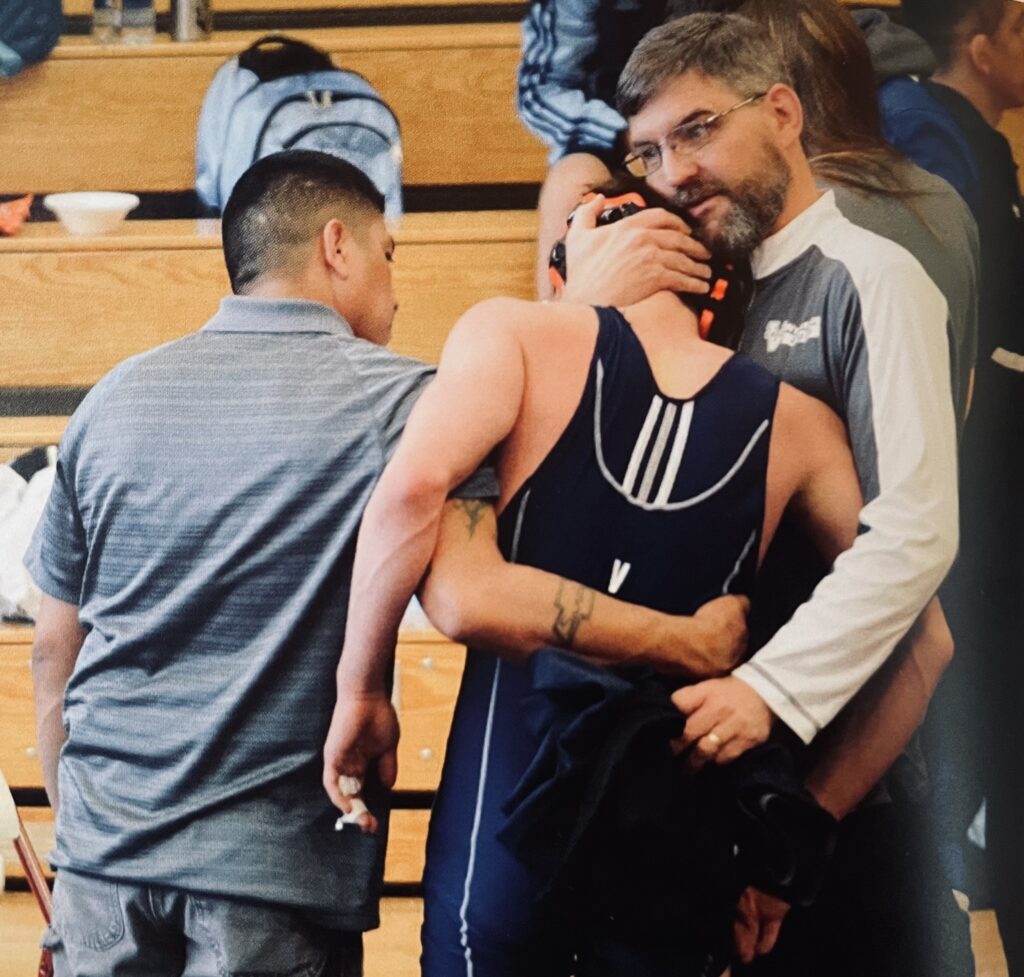We are not always fully aware of what we do intentionally and unintentionally to shape our children. Working in education for thirty-five years, I have run across too many young people who have been wounded and who struggle to find passion to pursue their dreams and be all they can be.
I can’t believe the adults in their lives (generally their parents) purposely intended to wound their children, but here we are. I am not even sure I could pinpoint exactly what occurs to make this happen. All I know is that it requires attention and recognition of the things we parents say regularly. We shouldn’t walk on eggshells around our children to ensure they never get wounded; however, we should understand that our failure to be mindful of how we communicate with our children could leave us in a place we never intended.
There is one type of parent I often see causing challenges for their children, and I would label them as “performance-based parents.” These parents focus more on achievement in their child’s life. They are always encouraging (and sometimes mandating) a higher level should to be attained or a failed life is inevitable. With this type of parent, when the child falls short of the parent’s perceived goals, a lecture, training session, or guilt trip is soon to follow. In doing so, this type of parent rarely gives their child the freedom to fail. Now I am all for helping a child set goals, and then getting behind them as they work through the process of attaining them, but there is a fine line between cheerleader and drill instructor that often gets crossed. I admit that sometimes it’s hard to know exactly what to do, what to say, or how hard to push. If you want to steer clear of being a “performance-based parent”, constantly monitor your child’s reactions to your actions. In addition, listen well, ask questions, watch for warning signs, and let your feedback to them be filtered through what you are seeing, and whether or not you are exasperating them. Ultimately, it’s not bad if your child experience failure, it can be one of the best teachers out there.
Some warning signs that you might be crossing the line:
- Your child is always trying to please you through their performance, and you reinforce that by being critical of every mistake that is made. In time, you will create a child who stops loving what they are doing (arts, sports, academics, etc), and instead is constantly monitoring your response to see whether you approve or disapprove of them.
- You take their disappointments and setbacks harder than they do. If this is so, often your frustration will come out in the words you speak to them, and attitude you display around them. If this goes on for a while, your child will lose the passion for what they are doing.
- You withhold praise and encouragement until you are satisfied. Often “performance-based parents” want to focus on correction, correction, correction, and they spend much more time providing vocabulary about adjustments that need to be made than they do in the things that were done well. This will steal the joy for your child, and in the end their development will be for the wrong reasons.
- You use manipulation to change outcomes. Maybe you might bribe them to put forth a better effort or threaten a punishment if a certain outcome isn’t achieved. If either of these are present, the message you are sending them is loud and clear, “your performance and your successes is what defines your value.” Manipulating your child to achieve what you want for them, so you can get the outcome you desire, doesn’t encourage an intrinsic motivational component, in fact it often violates it, and long-term success with whatever level you are wanting them to reach is going to come with frustration and unmet fulfillment for both of you.
What can you do to keep a healthy equilibrium:
- Always start with the words, “I love watching you …………..” (you insert the event or activity). “I love watching you compete.” “I love watching you work so hard to accomplish that goal”. “I loved watching you struggle, and then battling back. You are so courageous”. “I’m so proud of you, and how you overcame that challenge.” “It so amazing how much discipline and effort you put into your training.” Bottom line is that you are praising the process, more than you are the outcome.
- Hold on to this understanding that our children have a desire within them to make their parents proud. Everyone would love to get everything right the first time. The fact is that we don’t always do that. This is where grace comes in. Grace should be a common practice in all our lives. Grace takes the pressure off us to be perfect and gives us freedom to fail and admit when we have missed the mark. The consequences for our mistakes and failures are many times, punishment, or motivation enough. As a common practice we need to let your child know that they can trust you to not speak harshly to them or condemn them when they make a mistake or when they have fallen short.
- Reframe failure for them. Your home should be a safe place for your children to fail. You should be a safe person for your them to fail in front of. Mistakes and failures are some of the greatest teachers if we frame them that way. It’s the simple act of instilling in your child that failure is a positive thing when we learn from it. Don’t always step in and stop them before they have the chance to struggle. Let your kids fail, and then coach them into understanding the lesson in a positive and encouraging way. Obviously if something is going to hurt them, stop it before it happens, otherwise allow the child to meet the hardship. As your child fails, tries again, and succeeds, encourage them to see the distance between where they started from and where they are now.
- Encourage your children constantly. Encouragement must come alongside with learning from failure and handling challenges. The goal here is to build your child up, not tear them down. Sure failing, and challenging things will tear them down a little bit, but you’ll build them up 10x more. Our words are important. Think of all the things people said to you when you were a kid. Things they may not remember, but you do. We can’t take our words back once they leave our mouths, so make them count, and speak positivity as they continue to fight the good fight.
Bottom line: Unexpected failure can be a great teacher, so occasionally open the door for hard things in your children’s lives. Allow them to struggle through the process; it’s okay if they crash and burn. Encourage the heck out of them, and let them know you believe in them. One more thing: it would be great if you allowed yourself the same experience because that would make you a better “Coach4Life.”

